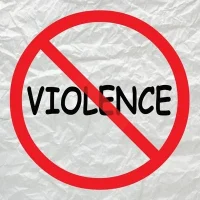Deadline: 17-Apr-23
The European Commission (EC) is seeking a call for proposals to Consolidate and promote the effectiveness of participatory and representative decision-making processes of civil society in all its pro-democratic scope.
Within the framework of the second priority of the Multiannual Action Plan (MAAP) 2022-2024 of the EU, as well as of the multiannual programming 2021-2027 of the Delegation of Bolivia, of the Joint European Strategy 2022-2025, of the Roadmap engagement with civil society 2019-2024, from the Country Implementation (CLIP) 2021-2024; of the Democracy and Human Rights Action Plan 2020-2024 and the Thematic Program on Human Rights and Democracy Global Europe 2022-2024, the overall objective of this call for proposals is: “Contribute to the construction of a more resilient, inclusive and democratic Bolivian society”.
Priorities
The priorities of this call for proposals are:
- Support civil society organizations (OSCs) and emerging civil society organizations-OSCEs – (particularly those made up of young people and women in all their diversities and indigenous peoples) for their participation in the debate and construction of a ‘country vision’ (on a social, ecological, economic and democratic level) within the framework of an inclusive, democratic and cohesive society.
- Strengthen the capacities of the OSCEs so that they can participate in the public debate on the future development of Bolivia in social, ecological, economic and democratic issues with a focus on human rights and favor their sustainability (organizational and/or institutional) in time. Proposals must propose a “learning by action” type of work methodology with OSCEs and other relevant processes.
- Promote articulation between the OSCEs and the already consolidated existing networks to encourage their participation in public debate processes, promoting the construction of a more cohesive social fabric.
- Promote the meeting and dialogue between the authorities (sub-national and national level) and civil society at its different levels (consolidated and emerging organizations) to reinforce a constructive dialogue, accountability and the development of a society inclusive, sustainable and democratic Bolivian.
- Facilitate the development of innovative alliances between CSO networks (including established and emerging ones), State oversight bodies, and the media.
- Proposals must cover the 5 priorities and also:
- Provide financial support to third parties (OSCEs, with the aim of forming initiative laboratories (proposals implemented by the OSCEs in the field) and serve as a basis for the work methodology of the “learning by action” type to reinforce them organizationally and, if they consider it pertinent, institutionally. They must budget a minimum of 30% and not exceed 40% of the total cost of the Action.
- The project will have to be developed in at least 3 lowland departments and 3 highland departments with actions at the national level. Proposals that include more than 6 departments will be positively valued.
- The proposal will have to include cities or secondary areas outside the main axis “La Paz Cochabamba-Santa Cruz” (at least 2 in the highlands and 2 in the lowlands).
Funding Information
- The total indicative amount allocated to this call for proposals amounts to 1.3 MEURO.
- The subsidies requested within this call for proposals will be between the following minimum and maximum amounts:
- minimum amount: 1,100,000 EUR
- maximum amount: 1,300,000 EUR
Eligibility Criteria
- Lead Applicant(s)
- To be eligible for a grant, the lead applicant must:
- be a legal person and be a civil society organization or a thematic network of CSOs working on the issue to which the proposal is being submitted
- In the case of existing networks but lacking legal status, the proposal must be submitted by one of the members of the network, who must necessarily have legal status and legal representation to act on behalf of the other members. In addition, the proposal must include the list of members of the network.
- In the case of networks in the process of creation, the proposal may be submitted by one of the members of the network, who must necessarily have legal status and the capacity to represent future members of the network.
- non-profit;
- be established in Bolivia;
- be directly responsible, with their co-applicants and affiliated entities, for the preparation and management of the action and not merely act as intermediaries.
- be a legal person and be a civil society organization or a thematic network of CSOs working on the issue to which the proposal is being submitted
- To be eligible for a grant, the lead applicant must:
- Co Applicants
- The action must have at least one co-applicant.
- Co-applicants will be involved in the design and implementation of the action, and the costs they incur will be eligible in the same way as those incurred by the lead applicant.
- Co-applicants must meet the eligibility criteria applicable to the main applicant himself, with the exception of the criterion of being established in Bolivia, which is extended to the following eligible countries:
- Member States, beneficiaries listed in the relevant annex to the IPA III Regulation and contracting parties to the Agreement on the European Economic Area; The main applicant and its co-applicants may act with affiliated entities. The lead applicant shall declare that it, co-applicants and affiliated entities are not located in any of such situations. name and surname of the persons with power of representation, decision-making or control, if it is a legal entity) may be registered in the early detection and exclusion system, and may be communicated to the corresponding persons and entities in relation with the award or performance of a grant contract. In this regard, provisionally selected lead applicants, co-applicants and affiliated entities are required to declare that they are not in any of the exclusion situations by means of a signed affidavit. For grants of EUR 15,000 or less, no affidavit is required.
- Developing countries and territories, included in the list of ODA recipients published by the OECD Development Assistance Committee, that are not members of the G-20 group, and overseas countries and territories;
- Developing countries, included in the list of recipients of ODA, that are members of the G-20 group, and other countries and territories, when the relevant procedure takes place in the framework of an action financed by the Union under the Instrument in which to participate;
- Countries for which the Commission establishes reciprocal access to external financing; that access may be granted, for a limited period of at least one year, provided that a country grants eligibility on equal terms to entities from the Union and from countries eligible under the Instrument; the Commission will decide on reciprocal access and its duration after consulting the recipient country or countries concerned.
- OECD member countries, in the case of contracts implemented in a LDC or a highly indebted poor country, as included in the list of ODA recipients.
- Co-applicants must sign the mandate.
- If the grant contract is awarded, the co-applicant(s) (if any) will become beneficiary(ies) of the action (together with the coordinator).
- Affiliated Entities
- The lead applicant and its co-applicant(s) may act with affiliated entity(ies).
- Only the following entities may be considered as affiliated entities to the lead applicant and/or to co-applicant(s):
- Only entities having a structural link with the applicants (i.e. the lead applicant or a co-applicant), in particular a legal or capital link.
- This structural link encompasses mainly two notions:
- Control, as defined in Directive 2013/34/EU on the annual financial statements, consolidated financial statements and related reports of certain types of undertakings:
- Entities affiliated to an applicant may hence be:
- Entities directly or indirectly controlled by the applicant (daughter companies or first-tier subsidiaries). They may also be entities controlled by an entity controlled by the applicant (granddaughter companies or second-tier subsidiaries) and the same applies to further tiers of control;
- Entities directly or indirectly controlling the applicant (parent companies). Likewise, they may be entities controlling an entity controlling the applicant;
- Entities under the same direct or indirect control as the applicant (sister companies).
- Entities affiliated to an applicant may hence be:
- Membership, i.e. the applicant is legally defined as a e.g. network, federation, association in which the proposed affiliated entities also participate or the applicant participates in the same entity (e.g. network, federation, association,…) as the proposed affiliated entities.
- Control, as defined in Directive 2013/34/EU on the annual financial statements, consolidated financial statements and related reports of certain types of undertakings:
For more information, visit European Commission.









































